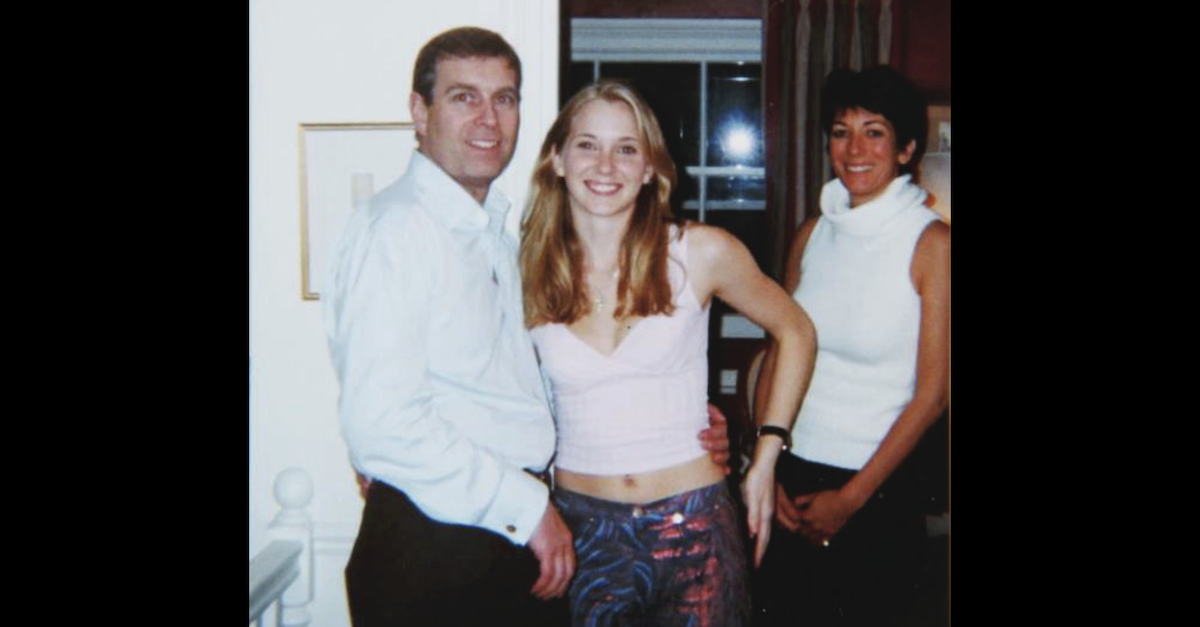
Prince Andrew has disputed that the woman accusing him of sexually abusing her as a 17-year-old girl served him properly with a lawsuit. That argument appeared to land poorly in court on Monday, when a federal judge signaled that this is a losing battle.
“Regardless of whether your client has been served effectively to date, you have a pretty high degree of certainty that he can be served sooner than later,” U.S. District Judge Lewis Kaplan told the prince’s lawyer during a telephone conference.
“Let’s cut out all the technicalities and get to the substance,” he added.
With that remark, the judge made clear that ducking service is not likely to be a successful gambit to avoid a lawsuit by Virginia Giuffre, one of the most outspoken victims of the now-deceased pedophile Jeffrey Epstein.
Giuffre alleges in her lawsuit that the Duke of York sexually assaulted her as a teenager in three places: Epstein’s New York mansion and private island in the U.S. Virgin Islands and accused sex-trafficking Ghislaine Maxwell’s London home.
Maxwell, whom Giuffre claims turned her into Epstein’s “sex slave,” can be seen in the background of a photograph showing the prince’s arm around the then-teenager’s waist. Giuffre made the same allegations against the prince during her since-settled 2015 lawsuit against Maxwell.
But Monday’s hearing revolved less around the allegations of the lawsuit than the propriety of U.S. courts to hear the case at all.
“We believe that this is a baseless, non-viable and potentially unlawful suit,” argued the prince’s lawyer Andrew B. Brettler, a Los Angeles-based attorney known for representing Hollywood luminaries accused of sexual misconduct like Armie Hammer, actor Danny Masterson, director Bryan Singer and filmmaker Brett Ratner.
Giuffre’s attorney David Boies insisted that service was proper.
“We’ve proceeded to serve Prince Andrew in several ways pursuant to Article 10 of the Hague Convention,” Boies said.
That is the treaty under which Prince Andrew disputes service, but Judge Kaplan skewered the prince’s lawyer by stating: ” I think we are making this a lot more complicated than it really is.”
“I’m sure you know that the Hague Convention is optional,” Kaplan told Brettler, adding that he can order service effected upon a foreign national under Federal Rule 4(f)(3) of the United States code.
That rule offers wide latitude for serving a foreign person “by other means not prohibited by international agreement, as the court orders.”
Judge Kaplan indicated that he would likely grant that order—and is “unlikely” to change his mind on that front.
The prince’s dispute, however, will stall the proceedings to accommodate a formal request by Giuffre’s lawyers for that order. Boies has a little more than a week to file that request with the court by Sept. 23. The prince’s lawyer will reply a week later on Sept. 30.
The parties will argue the motion in court during a follow-up hearing on Oct. 13 at 10 a.m.
As for the substance of the case, the Duke of York vehemently denies Giuffre’s allegations. For years, federal prosecutors in the Southern District of New York described the prince as unhelpful in their investigation into the Epstein case. The district’s former U.S. Attorney Geoffrey Berman released a statement declaring that Prince Andrew provided “zero cooperation” in connection with the matter.
His successor, current U.S. Attorney Audrey Strauss, made a point to say that her office “would like to have the benefit” of the prince’s statement, when Maxwell’s charges were made public.
Maxwell’s criminal case will go to trial in November inside the Southern District of New York, the same courthouse where Giuffre filed her civil lawsuits against the prince and Maxwell.
(Photo from Giuffre’s lawsuit)